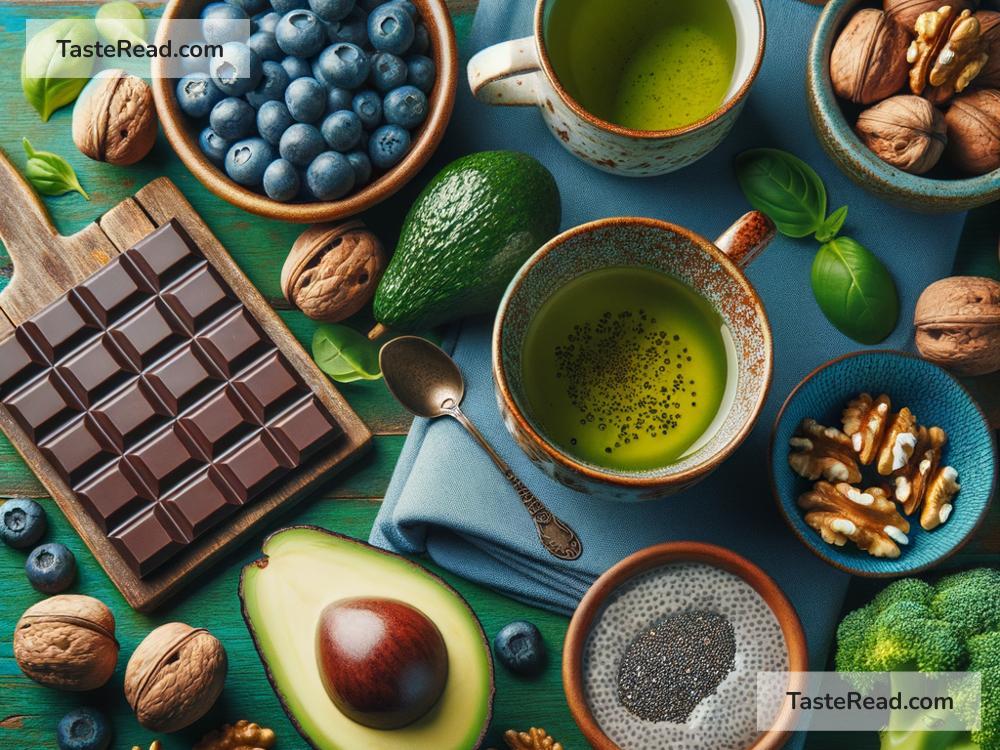Foods That Help Reduce Stress Hormones
Stress has become an unavoidable part of life for many people. From work deadlines to household responsibilities, the constant pressure can leave us feeling overwhelmed. When stress continues for too long, our bodies produce hormones, like cortisol and adrenaline, which can negatively impact our mental and physical health.
While we can’t always control the stress in our lives, we can manage how our bodies respond to it. One way to do this is by making smart food choices. Certain foods have nutrients that can help lower stress hormones and promote a sense of calm. Let’s explore some of the best foods for reducing stress hormones, all explained in plain English.
1. Dark Leafy Greens
Vegetables like spinach, kale, and Swiss chard are packed with magnesium, a mineral that helps regulate cortisol levels. When you’re stressed, magnesium levels in your body may drop, which can make things worse. Eating leafy greens can replenish your magnesium stores and help calm your nervous system.
Try adding spinach to sandwiches, blending kale into smoothies, or sautéing Swiss chard for a quick and nutritional dish.
2. Avocados
Avocados are creamy, delicious, and rich in B vitamins, which are essential for maintaining good mental health. Studies show that B vitamins can reduce stress and anxiety by helping the brain produce feel-good hormones like serotonin.
Use avocado to make guacamole, slice it onto toast, or add it to salads for a stress-busting boost.
3. Fatty Fish
Salmon, mackerel, and other fatty fish contain omega-3 fatty acids, which lower inflammation in the body and promote a healthy brain. Omega-3s can reduce stress hormones like cortisol and help your body respond more calmly to challenges.
Aim to eat fatty fish at least twice a week. Grill salmon for dinner, try a tuna salad for lunch, or enjoy sardines with crackers.
4. Nuts and Seeds
Almonds, walnuts, pumpkin seeds, and sunflower seeds are full of magnesium and healthy fats, which help control mood swings and keep your stress levels in check. Additionally, these foods provide protein and energy to fuel your body when you’re feeling low.
Snack on a handful of nuts, sprinkle seeds on yogurt, or include them in your oatmeal for a satisfying treat.
5. Berries
Blueberries, strawberries, and blackberries are small fruits with a big impact on your stress levels. They contain antioxidants, which protect your body from the damage caused by stress. Antioxidants also help regulate cortisol and support a healthy immune system.
Mix berries into smoothies, eat them fresh, or add them to your cereal for some extra color and flavor.
6. Bananas
A simple banana can work wonders when you’re feeling stressed. Bananas are high in potassium, which helps lower blood pressure and regulate your heartbeat. They also contain tryptophan, an amino acid that supports serotonin production for better moods.
Grab a banana as a quick snack or blend one into your morning smoothie for a calming effect.
7. Dark Chocolate
Good news for chocolate lovers! Dark chocolate, especially the kind with at least 70% cocoa, can reduce stress hormones like cortisol. Cocoa contains compounds that improve blood flow to the brain, helping you feel clearer and more relaxed.
Enjoy a square or two of dark chocolate as a treat, or mix it into desserts for a stress-relieving boost.
8. Herbal Teas
Warm herbal teas, such as chamomile, peppermint, and green tea, are known for their stress-relieving properties. Chamomile helps relax the nervous system, while green tea contains L-theanine, an amino acid that promotes calm focus.
Sip a cup of tea during stressful moments to feel more grounded and balanced.
9. Yogurt
Yogurt is full of probiotics, which support gut health. Since there’s a strong connection between gut health and mental health, eating yogurt can help balance hormones like cortisol. Choose unsweetened, plain yogurt for the best benefits.
Add fresh fruit or granola to yogurt for a refreshing snack or breakfast.
10. Whole Grains
Brown rice, quinoa, oats, and other whole grains provide long-lasting energy and help stabilize your mood. They contain complex carbohydrates, which support serotonin production. Whole grains also keep your blood sugar steady, preventing stress-related energy crashes.
Start your day with oatmeal, use quinoa as a side dish, or make sandwiches with whole-grain bread.
Final Tips
While eating stress-relieving foods is a great step toward managing stress hormones, it’s also important to maintain a balanced lifestyle. Pair healthy eating with regular exercise, sleep, and mindfulness practices, like meditation or deep breathing.
Remember, managing stress isn’t just about avoiding unhealthy foods – it’s about filling your diet with nutrient-rich options that support your mind and body. Try adding some of the foods listed above to your meals, and watch how they help you feel calmer and more in control.
Start small and stay consistent. After all, every bite counts toward better health and less stress.


